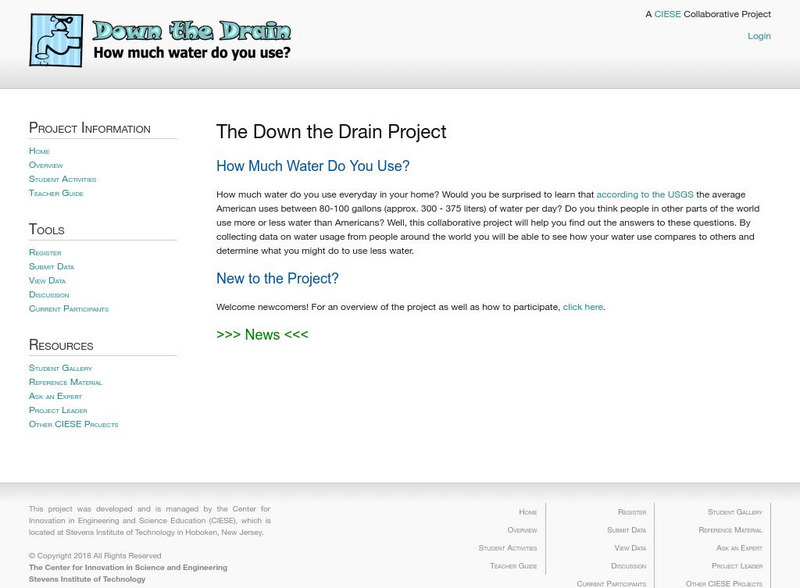TeachEngineering
Teach Engineering: Fresh or Salty?
Between 70 and 75% of the Earth's surface is covered with water and there exists still more water in the atmosphere and underground in aquifers. In this lesson, learners learn about water bodies on the planet Earth and their various uses...
Other
North Carolina Department of Energy and Natural Resources: Grade Your Schoolyard
What is your school doing to protect and conserve water? Use the following questions to find out. When you are done, make some suggestions for how your school could improve. What could you and your class do to help?
CK-12 Foundation
Ck 12: Life Science: Preserving Water Sources
[Free Registration/Login may be required to access all resource tools.] It might seem like there is plenty of water on Earth, but that's not really the case. Water is a limited resource. That means that it is used faster than it is...
Environmental Education for Kids
Eek!: Water Wonders
This site from the Environmental Education for Kids contains colorful and detailed information on water resources. Site covers fascinating tips and facts, as well as engaging quizzes on the wonderful world of water. Best suited for...
Science Education Resource Center at Carleton College
Serc: Epa Water Science and Technology for Students and Educators
Discover water science lesson plans, games, and other resources as well as links to EPA's online training academies.
US Senate
U.s. Senate Committee on Energy and Natural Resources
The responsibilities of the Committee on Energy and Natural Resources oversees important legislation in Congress and has distinguished itself as among the most nonpartisan in the Senate.
TeachEngineering
Teach Engineering: Human Water Cycle
Students learn about the human water cycle, or how humans impact the water cycle by settling down in civilizations. Specifically, they learn how people obtain, use and dispose of water. Students also learn about shortages of treated,...
eSchool Today
E School Today: What Is Your Role in Water Preservation?
Find out what you can do about global water scarcity and conservation.
Other
Nrdc: Clean Water and Oceans
What prompted congress to pass the Clean Water Act? Has this legislation been successful? The Natural Resources Defense Council offers information on fresh and ocean waters, pollution control, conservation, and more.
PBS
Pbs Learning Media: Playing With Water Packet: Grades 1 and 2: Summer of Possibilities
Use these water-themed activity sheets to allow children to choose their own learning adventures.
Other
Florida Dept. Of Education: Conservation of Renewable and Nonrenewable Resources
In this learning module, students learn to differentiate between renewable and nonrenewable resources, and identify resources that fit into each category. It explains the environmental effects of using nonrenewable resources, such as...
Environmental Education for Kids
Eek!: Teacher Resources: Groundwater Study Guide [Pdf]
This study guide is designed to help learners begin thinking about groundwater - where it comes from, why it's important, and how it can be conserved and protected. The guide includes a brief overview of groundwater, a glossary, and...
Nature Conservancy
The Nature Conservancy: Gardens Activity Guide: Water
In this guide helps students understand their garden as a model watershed through the collection and analysis of rainwater filtration data.[4.06]
National Geographic Kids
National Geographic Kids: Green Tips: Conserve Resources
Here are some quick tips to help you conserve our natural resources. Make sure you check the related content on the right side of the page.
Environduck
Enviroduck: A Greener Home Save Resources Like Water and Energy
Go green at home by saving energy, water, food. Learn how to conserve.
US Environmental Protection Agency
Epa: Surf Your Watershed
This resource provides information on watersheds, maps, activities, and links to local watershed information.
State Library of North Carolina
N Cpedia: Conservation Movement: Water Conservation
The conservation movement in North Carolina began with methods of maintaining the timber supply and restrictions on wasteful colonial hunting practices. Some eighteenth-century North Carolinians noted the effects of wasteful practices...
American Geosciences Institute
American Geosciences Institute: Why Is Water an Important Resource?
Learn about water's importance to our planet, Earth.
PBS
Nh Pbs: Nature Works: Estuaries
Learn more about estuaries when you visit this informative site. This resource provides locations of and weblinks to estuaries in the United States.
Nature Conservancy
The Nature Conservancy: From America's Rainforest to America's Desert
On this virtual field trip, teachers will help their students travel to the lush, rain-soaked splendor of the Olympic Peninsula and explore the urban watershed of Seattle. Next, they will head to Arizona's dry, desert landscape and take...
Science Education Resource Center at Carleton College
Serc: Water Conservation
Learners increase their sustainability knowledge, and estimate water waste through leaking faucets in US.
US Environmental Protection Agency
Epa: Where Does Your Water Come From? [Pdf]
Where does your drinking water come from? This resource features a clear and concise explanation for this question. This resource will be beneficial to students and teachers.
Center for Innovation in Engineering and Science Education, Stevens Institute of Technology
Ciese: Down the Drain Project
Teachers can start this project at any time and no registration is required. Students collect data about water usage for themselves, their homes and their class. They analyze it, make predictions about it, and submit the data to the...
NOAA
Noaa: National Ocean Service Education: Nonpoint Source Pollution
Illustrated tutorial explains nonpoint source pollution and its role in the health of the environment. Students learn about different sources of pollution and how these pollutants contaminate the land, air, and water. Click on the links...


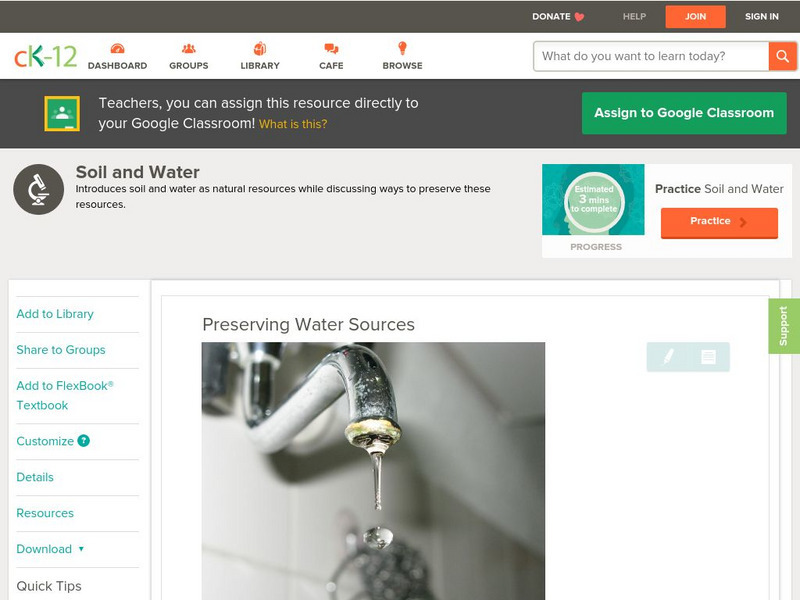
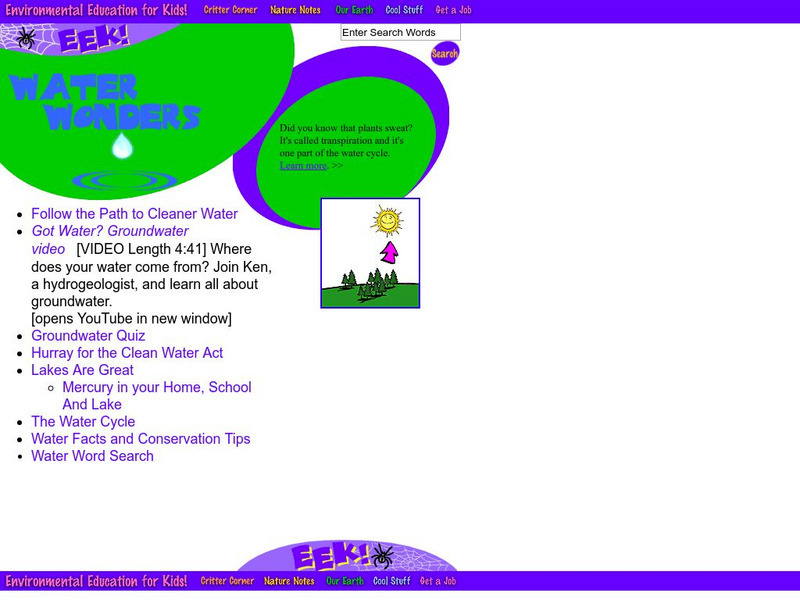
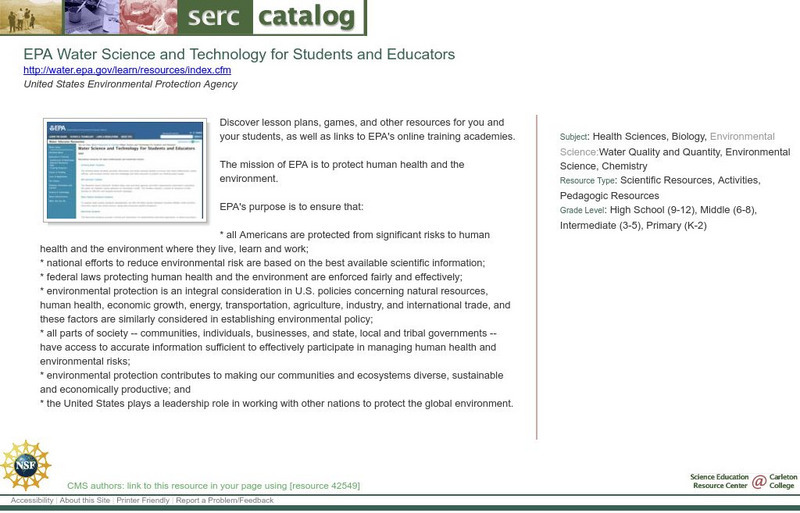
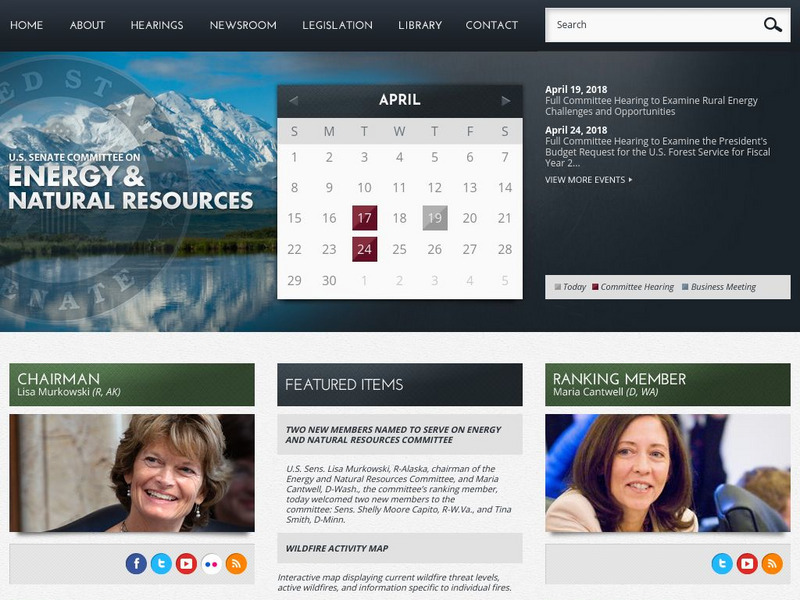


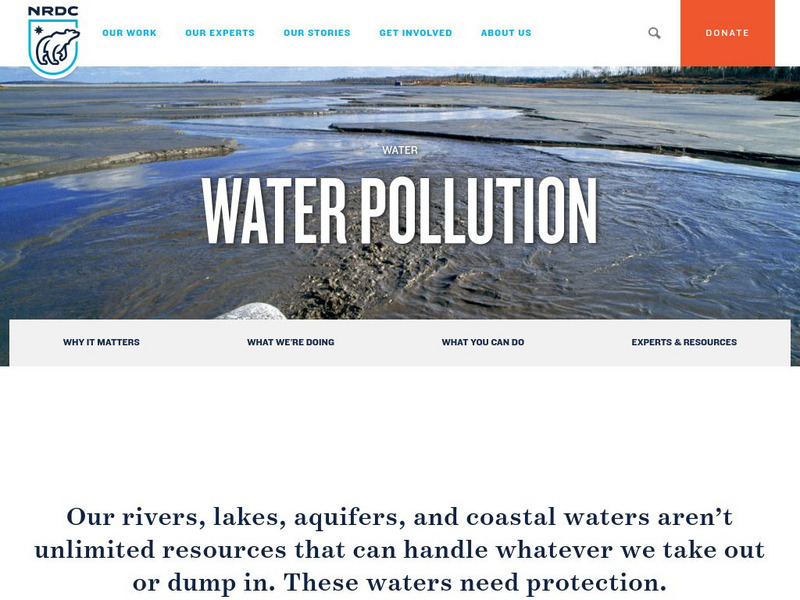





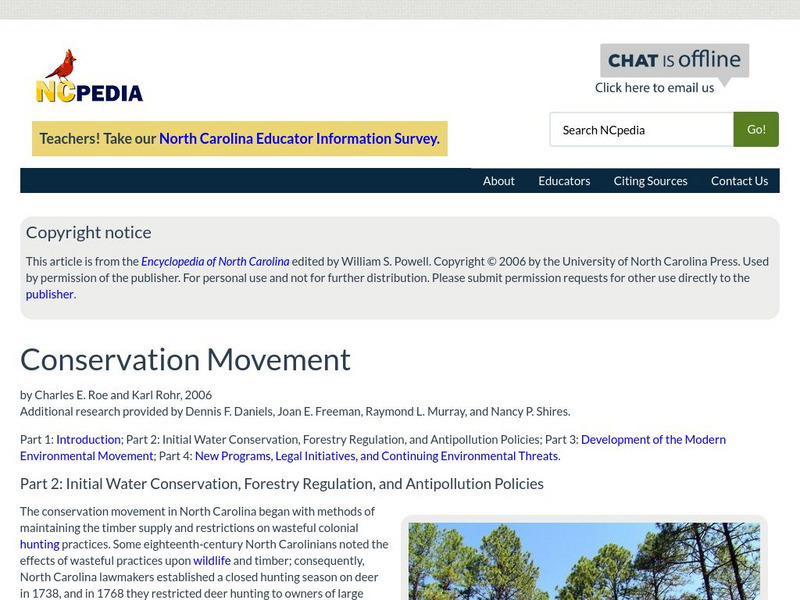
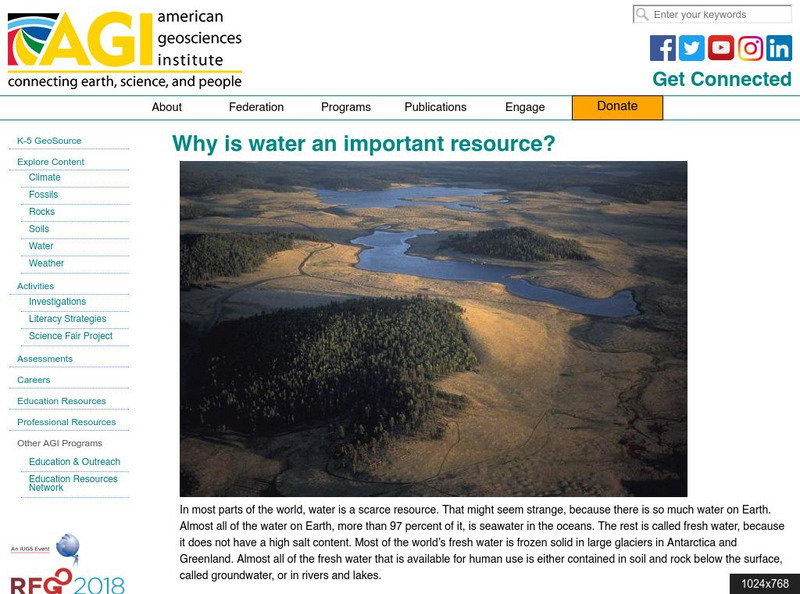



![Epa: Where Does Your Water Come From? [Pdf] Lesson Plan Epa: Where Does Your Water Come From? [Pdf] Lesson Plan](https://content.lessonplanet.com/knovation/original/41160-83ff7c05b0f0460206fa551d2700d8dc.jpg?1661270414)
